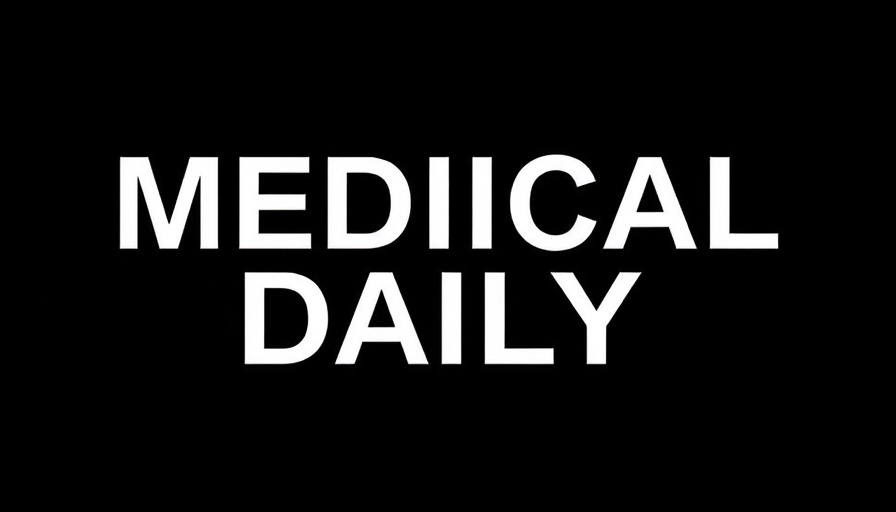
Work Requirements in Medicaid: A Push for Change
Recent discussions surrounding Medicaid have sparked a contentious debate, particularly as Representative Dan Crenshaw (R-TX) insists that able-bodied adults can keep their Medicaid benefits by simply getting a job. This proposal is part of a broader GOP strategy to impose work requirements aimed at cutting down Medicaid costs, with a target of saving $880 billion over the next decade. While advocates believe these measures will help restore what they term the "dignity of work," critics argue such reforms may inadvertently hurt those who are already struggling and in need of support.
Understanding the Numbers: Who Are Affected?
According to research, around 64% of adults currently on Medicaid are already working. The real concern arises from the remaining 36%, many of whom may not be in a position to meet these new work requirements due to various factors such as caregiving responsibilities, health issues, or educational pursuits. Critics note the situation in Arkansas, where mandatory work requirements led to over 18,000 individuals losing Medicaid coverage – highlighting the potential pitfalls of such a system that have little effect on actual employment figures.
The Emotional Weight of Work Requirements
Beyond numbers and policies, there is a human element to this issue. For many, Medicaid provides essential support that helps maintain their health and livelihood. The notion that simply acquiring a job can resolve all dilemmas overlooks the complex realities facing individuals, particularly those from marginalized backgrounds. Many face barriers like lack of access to resources, which complicates their ability to meet work requirements.
Voices of Opposition: Staff and Communities Speak Out
Various community leaders and staff have voiced serious concerns regarding these proposed changes. They stress that for many beneficiaries, maintaining healthcare is not merely about employment but about navigating a system that already poses significant challenges. The fear that vulnerable populations could lose coverage due to bureaucratic obstacles raises questions about accountability and responsibility in the system.
What’s Next for Medicaid?
The debate over Medicaid continues, especially as the House Budget Committee voted against the proposed bill, which now faces uncertainty as lawmakers aim to meet deadlines. As we delve deeper into these discussions, understanding how welfare and employment intersect can be crucial in forming effective policies. For now, it’s crucial that dialogue remains open, focusing on solutions that genuinely uplift communities rather than impose punitive measures.
Taking Empowered Steps Toward Change
As this critical issue develops, it’s pivotal for us as a community to advocate for balanced solutions. Whether by engaging in conversations with local leaders or participating in community programs, each action contributes to creating a system that supports all its members. If you’re interested in being a voice for positive change, consider attending local town halls or educational workshops that focus on health policies and community well-being.
 Add Row
Add Row  Add
Add 




Write A Comment